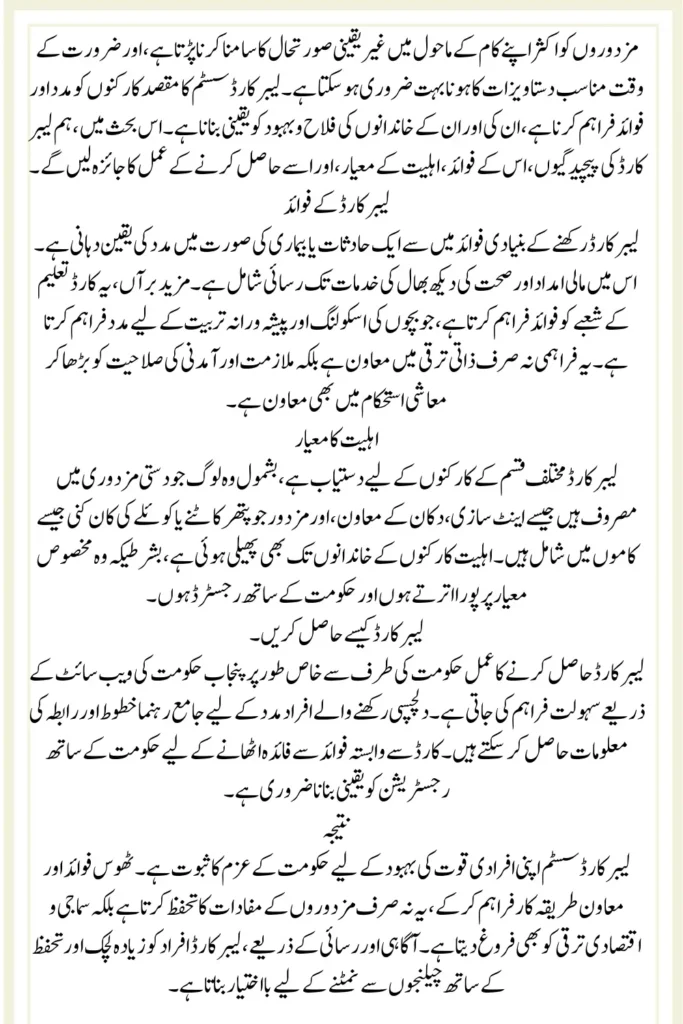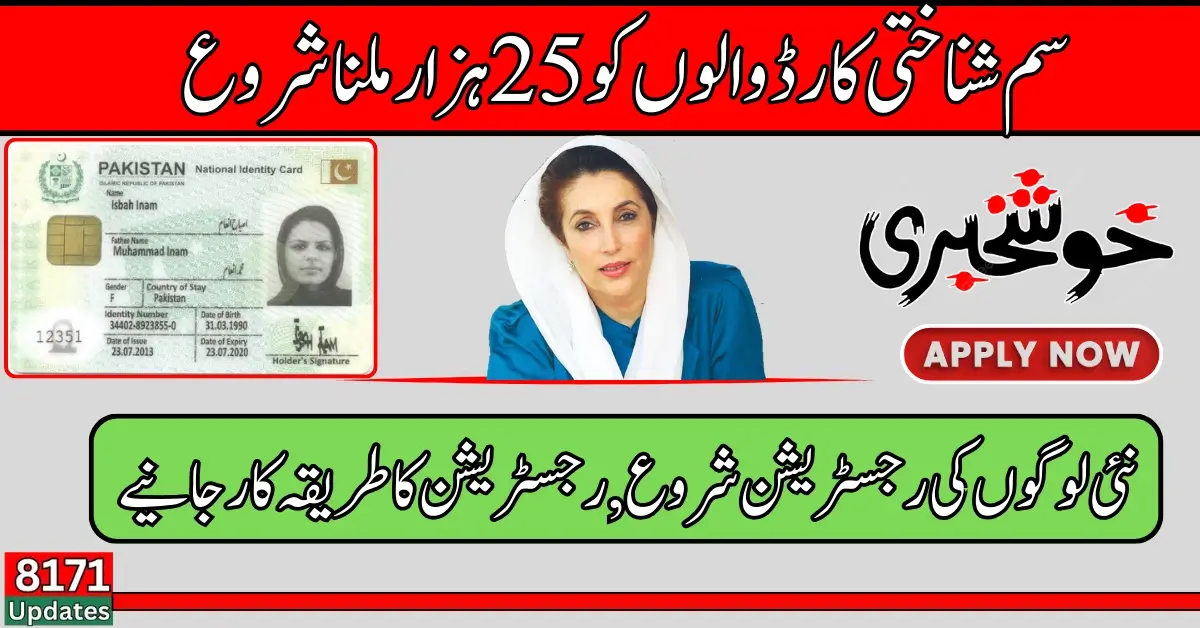In Pakistan, the issuance of ID cards is pivotal for accessing government assistance programmes. These ID cards, available in Urdu or English, serve as a prerequisite for eligibility for the Eid 25000 Program. Without one, individuals may be excluded from vital initiatives, including welfare programmes designed to aid disadvantaged families. Then the money coming from you people is You guys won’t get that new instalment again. Will not be able to achieve a new dynamic registry from the poor government. People who have also started Are in need or have formed a new family.
Also Read This: Get 16,000 Ramadan Relief From Jannat ul Firdous Trust
The Government of Pakistan administers programmes aimed at supporting impoverished families, providing crucial aid to the most vulnerable segments of society. The possession of an ID card is mandatory for participation, ensuring that assistance reaches those in dire need.

Eid 25000 Program Online Registration
Recent discussions centre around a proposed 25,000 grant, raising questions about associated charges such as OTP fees. Concerns also emerge regarding tax collection and resource allocation, highlighting the necessity for transparency in government operations. Issues persist regarding the distribution of free rations during Ramadan, with some eligible beneficiaries reporting a lack of received aid. This underscores doubts about the effectiveness and fairness of government relief efforts.
| Key Points | |
|---|---|
| Issuance of ID Cards | Crucial for accessing government assistance programmes |
| Government Welfare Initiatives | Aimed at supporting impoverished families |
| Recent Updates and Concerns | Regarding proposed grants and associated charges |
| Distribution Challenges and Accountability | Highlighting doubts about relief efforts |
| Scrutiny on Government Role and Relief Packages | Calls for addressing systemic inequalities |
| Ongoing Efforts and Challenges | Streamlining welfare programme applications |
| Future Directions and Collaborative Efforts | Leveraging technology for aid delivery |
Are you looking to register for Benazir Income Support Program (BISP) through SMS? Good news! A new update has been introduced to simplify the registration process, making it easy and accessible to all eligible persons. In this article, we will walk you through the simple steps to register for BISP using the latest SMS service introduced in 29 July 2024 2024.
BISP SMS Service Registration
Registering for the unique Income Support program is now incredibly easy, thanks to the new SMS service. This update allows individuals to complete their enrollment from the comfort of their homes, eliminating the need for lengthy paperwork and visits to enrollment centres.
To ensure a smooth registration process, keep the following tips in mind:
- Use a registered SIM: It is important to send SMS from the SIM card registered in your ID card name. This helps to verify your identity and ensures a prompt response from the system.
- Confirmation response After sending your ID card number to 8171, wait for the confirmation reply. This answer will indicate whether you are eligible to register for the program.
- Registered SIM for husband: For women whose names are not registered or who have limited information, they can send an SMS to the number 8171 to the number registered in their husband’s ID card.
Government Relief Packages
The government faces scrutiny over its administration of relief packages, particularly concerning subsidy distribution and educational stipends. Calls for increased support for underprivileged students underscore the need to address systemic inequalities. Efforts are underway to streamline welfare programme applications, focusing on inclusivity and efficiency. However, challenges remain, particularly in remote areas where resource access is limited.
Also Read This: 8171 Portal New Update: BISP 10500 Payment Start By Bank ATM
Efforts to enhance aid delivery and welfare systems involve leveraging technology and community outreach initiatives. Collaboration with civil society organisations and grassroots networks is crucial for achieving these objectives.
Conclusion
While progress has been made in extending support to disadvantaged communities, there is still work to be done. Addressing systemic barriers and ensuring equitable resource distribution are essential for fostering a more inclusive society in Pakistan. Pakistan’s efforts in extending support to disadvantaged communities show progress, yet challenges persist. Addressing systemic barriers, ensuring transparent resource distribution, and enhancing accountability are crucial steps.
By fostering collaboration and leveraging technology, the nation can move towards a more inclusive society where no one is left behind. Continued dedication to these principles will pave the way for a brighter future for all citizens.
